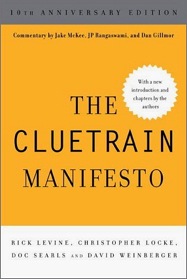In an interesting article, Chris Anderson and Michael Wolf argue the decease of the Web. Mostly the article covers the commercial end of the Web. My question would be if the stuff they describe in their article is applicable inside the firewall. The consumer world is setting the trend for technology inside organizations these days as it once was the other way around. This would imply that at least some if not all of the article will apply to organizations some time in the future.
The mayor paradigm shift Chris Anderson is describing means that apps are taking over the position of the browser. This shifts was accelerated by the introduction of the iPhone and iPad recently. The total amount of traffic of websites will get smaller and smaller the coming years.
Would this mean that the intranet as we know it will move away from the browser? At the moment workers predominantly use PC’s and laptops for work, either at home or at the office. Smartphones are on the rise and are already taking over as a primary email client. The characteristics of apps is that they offer a closed and limited set of functionalities. The intranet has to be cut into small pieces of homogenous functionalities and be fitted to app size.
We are starting these discussions with our clients with success. Because the examples in the consumer world are ubiquitous (for instance LinkedIn for iPhone or Twitter for Blackberry), everybody can imagine how this will look like. The idea of a peoplefinder like functionality on your smartphone has added value because when you are on your way to a meeting you generally speaking only have access to your smartphone. There are already apps to use your SharePoint intranet available. If Chris is right than we will see this paradigm shift as-well inside the firewall. The primary catalyst will be be shift away from the normal screen and towards iPad or Tablet like hardware.
What do you think? Can you share an example of an app that offers intranet functionality? Would be great to hear and share ideas!
